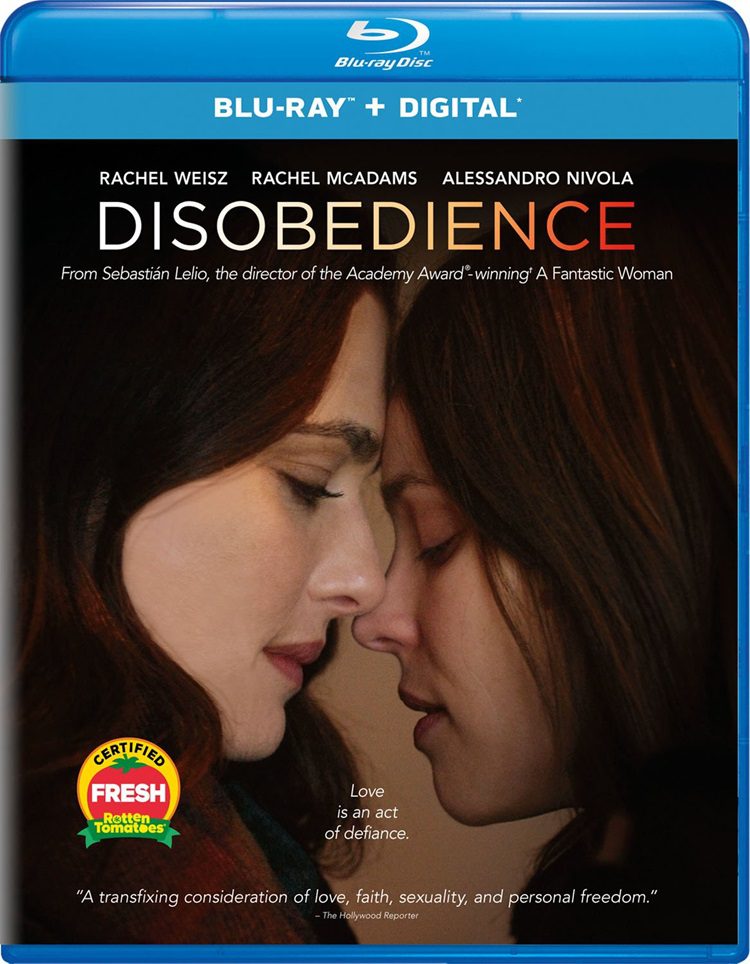
After helming the Oscar winning foreign language film A Fantastic Woman, director Sebastian Lelio brings us Disobedience, a portrait of forbidden love that is transfixing and anchored by three flawless leading performances. Also, like A Fantastic Woman, it is a great portrayal of queer women finding their inner strength and is a gem that slowly has you under its spell by the time it’s over.
Based on the novel by Naomi Alderman, Disobedience tells the story of a New York photographer named Ronit (Rachel Weisz) who returns back home to London after hearing about the death of her father. Her arrival surprises many in her community given how she disappeared years ago. One person in particular who is quite taken by Ronit’s return is a former childhood friend named Esti (Rachel McAdams). Both her and Ronit reignite a romantic passion they once had which slowly challenges the conservative Orthodox Jewish community that they’re a part of.
The dynamic romance between the two women is brilliantly brought to life by the two lead actresses. Rachel Weisz is a fiery presence as the rebellious Ronit, using every ounce of her movie star charisma. However, as terrific as Weisz is, it is Rachel McAdams who steals the show as Esti. McAdams is a quiet revelation as a woman who morphs from a demure housewife to a fiercely independent lover. It’s a performance that manages to top both her Oscar nominated turn in Spotlight and her career best performance in Mean Girls.
However, there is an actor who will surely be the film’s unsung hero and that is Alessandro Nivola as Rabbi Dovid Kuperman, Esti’s controlling husband. In the hands of a lesser actor, Dovid could’ve been portrayed as a one-dimensional, domineering figure. But Nivola presents him with an authoritative exterior that contradicts his sullen eyes that express his need to make his wife happy even as she’s being unfaithful to him. All three actors capture the rampant feelings of their characters through facial glances, channeling the beautiful yet nearly wordless screenplay by Sebastian Lelio and Rebecca Lenkiewicz. The luminous cinematography by Danny Cohen, which is always focused on their expressive faces, helps us absorb their performances as well.
One of the film’s most well-shot sequences is one that takes place before Ronit and Esti decide to go to a place to consummate their feelings. They barely say anything. They just decide to escape their community while the sun shines brightly on them and the camera keeps focusing on their relieved yet anxious facial expressions. Also, the harmonious score composed by Matthew Herbert accompanies the mood of that passionate moment before they even start to exhibit their sensual desires. It’s a perfect, well-crafted moment in a film full of them.
Disobedience is a quiet yet beguiling romance that slowly lingers on you after it ends. Its main trio of actors give three of the best performances of the year and both the rapturous score and the cinematography make it captivating as well. This one is a must-see.